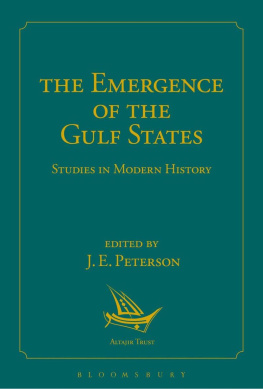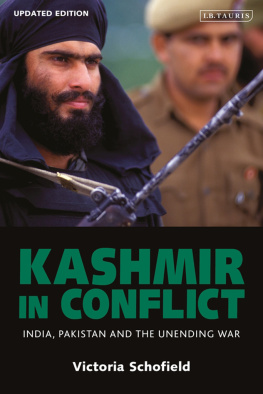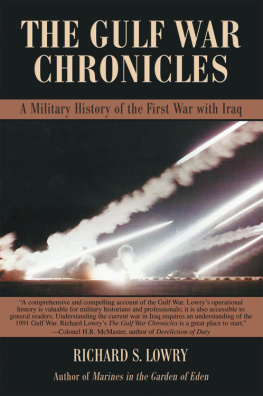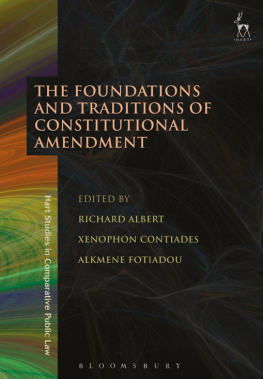ROUTLEDGE LIBRARY EDITIONS: HISTORY OF THE MIDDLE EAST
Volume 12
TERRITORIAL FOUNDATIONS OF THE GULF STATES
TERRITORIAL FOUNDATIONS OF THE GULF STATES
Edited by
RICHARD SCHOFIELD
First published 1994 by UCL Press
This edition first published in 2017
by Routledge
2 Park Square, Milton Park, Abingdon, Oxon OX14 4RN
and by Routledge
711 Third Avenue, New York, NY 10017
Routledge is an imprint of the Taylor & Francis Group, an informa business
1994 Richard Schofield and contributors
All rights reserved. No part of this book may be reprinted or reproduced or utilised in any form or by any electronic, mechanical, or other means, now known or hereafter invented, including photocopying and recording, or in any information storage or retrieval system, without permission in writing from the publishers.
Trademark notice: Product or corporate names may be trademarks or registered trademarks, and are used only for identification and explanation without intent to infringe.
British Library Cataloguing in Publication Data
A catalogue record for this book is available from the British Library
ISBN: 978-1-138-22002-7 (Set)
ISBN: 978-1-315-39118-2 (Set) (ebk)
ISBN: 978-1-138-22124-6 (Volume 12) (hbk)
ISBN: 978-1-138-22127-7 (Volume 12) (pbk)
ISBN: 978-1-315-41097-5 (Volume 12) (ebk)
Publishers Note
The publisher has gone to great lengths to ensure the quality of this reprint but points out that some imperfections in the original copies may be apparent.
Disclaimer
The publisher has made every effort to trace copyright holders and would welcome correspondence from those they have been unable to trace.
Territorial foundations of the Gulf states
Edited by
Richard Schofield
Richard Schofield and contributors 1994
This book is copyright under the Berne Convention.
No reproduction without permission.
All rights reserved.
First published in 1994 by UCL Press.
UCL Press Limited
University College London
Gower Street
London WC1E 6BT
The name of University College London (UCL) is a registered
trade mark used by UCL Press with the consent of the owner.
ISBN:
1-85728-121-7 HB
1-85728-122-5 PB
A CIP catalogue record for this book
is available from the British Library.
Typeset in Palatino.
Printed and bound by
Biddies Ltd, Guildford and Kings Lynn, England.
Contents
Richard Schofield
George Joff
John C. Wilkinson
Julian Walker
Maurice Mendelson & Susan Hulton
Richard Schfield
Rodman R. Bundy
David Pike
Gerald Blake
Paul Stevens
Keith McLachlan
This volume has its origins in a one-day conference of the same name hosted by the Geopolitics and International Boundaries Research Centre at London Universitys School of Oriental and African Studies in May 1991. Then seemed a particularly timely occasion, following Iraqs brutal adventurism in Kuwait, to examine how the present framework of state territory in the Gulf region had been arrived at and whether the contradictions and vulnerabilities inherent in its origins had been ameliorated with time. Two years on, the reasons for undertaking such a review have, if anything, grown. In the aftermath of the Kuwait crisis it had been commonly assumed that states of the Gulf littoral would put a higher priority than before on respecting and maintaining territorial integrity. Yet a surprising number of new disputes have erupted, and dormant rather than previously resolved cyclical disputes have been resurrected. The United Nations final settlement of the Iraq/Kuwait boundary is not without its problems, while Bahrain and Qatar are really no closer to solving their maritime disputes. A violent incident on the undemarcated Saudi/Qatar border during the autumn of 1992 and the flare-up of the previously controlled IranoArab dispute over the status of Abu Musa and the Tunb islands have overshadowed genuine strides made to finalize the political map of the Arabian peninsula in the last two years or so: the ratification and registration at appropriated international institutions of the March 1990 SaudiOman border agreement (MayJuly 1991); an agreement fixing the OmanYemen land boundary (October 1992); and the commencement of talks between Yemen and Saudi Arabia (July 1992) to arrive at a delimitation for the peninsulas last indeterminate frontier.
In a substantial introductory section, Richard Schofield traces in great detail the evolution of territorial limits within the peninsula and discusses their current status. For the sake of comprehensiveness, sizeable sections are included here on important contemporary disputes and issues, which have escaped detailed commentary in the remaining ten chapters of this volume: the UN settlement of the Iraq/Kuwait boundary; the SaudiYemen dispute over oil and borders; the IranoArab dispute over Abu Musa and the Tunbs; and, lastly, the Bahrain/Qatar dispute over the ownership of the Hawar islands and the Jaradah and Dibal shoals. George Joff then reviews indigenous concepts of sovereignty in the Gulf region and their relation to the contemporary framework of territory. Britains attitude to boundary-drawing within Arabia is tackled in general terms by John Wilkinson, focusing upon the long-running through ultimately fruitless AngloSaudi negotiations towards establishing territorial limits in southern Arabia in the 193455 period, and in more geographically specific terms by Julian Walker, who reviews his experience more than three decades ago of trying to arrive at boundaries for the component shaikhdoms of the modern United Arab Emirates. In the third section of the collection, Iraqs claim to the entirety of Kuwait forms the subject of Maurice Mendelsons and Susan Hultons thorough legal review, while Iraqs constant quest to improve its access to Gulf waters, generally at the expense of the Kuwaiti islands of Warbah and Bubiyan, is addressed by Richard Schofield. Rodman Bundy begins the next section on maritime and resource disputes with an analysis of the maritime boundary delimitations that have been concluded to date in the Gulf. The critically important subject of transboundary hydrocarbons disputes in the region is then tackled by David Pike. This part of the book is rounded off imaginatively by Gerald Blake, who asks whether there is not greater scope for instituting shared political space in order to lessen the potential for conflict of the regions most enduring territorial disputes. A final section comprising chapters by Paul Stevens and Keith McLachlan discusses the oil exploration and production policies of the states of the Gulf littoral and their effect in promoting regional co-operation or, alternatively, conflict and competition, the latter often manifesting itself in the outbreak of territorial disputes.
A considerable effort has been made to ensure that this volume is as up to date as possible. All developments up until the end of 1992 are covered, where appropriate, in the text. has been updated to August 1993. An attempt has been made to employ familiar and simplified Arabic transliterations for placenames and real names on a consistent basis in the following pages. Throughout this work, including in its title, the Persian Gulf, a placename recognized by the UN and OPEC, is referred to as the Gulf.














